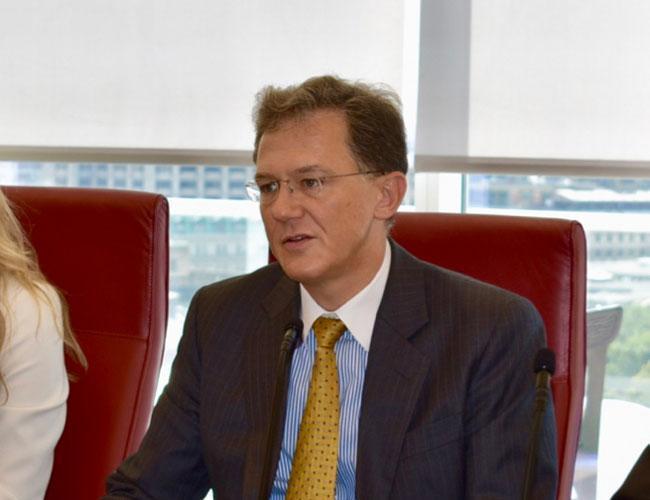
The United States is in efforts to find a balance between Turkey’s security concerns over the illegal PKK and its ongoing cooperation with the YPG, an offshoot of the PKK according to Ankara, a senior U.S. official has said.
“The U.S. very much understands Turkey’s concerns with the PKK. We had long discussions about the situation in northern Syria, trying to find the balance between addressing Turkey’s legitimate security concerns and at the same time trying to end a threat that ISIS poses in the region, particularly in Syria,” U.S. Deputy Assistant Secretary of State for European and Eurasian Affairs George Kent said during a video conference interview with reporters in Kyiv on Nov. 7.
He was responding to a question on the split between Turkey and the U.S. over the YPG position in Syria, which heated up after recent U.S. patrols with the YPG, a move that has angered Ankara.
Turkey considers every support given to the YPG as a direct or indirect support to the illegal PKK, Turkish Presidential Spokesperson İbrahim Kalın said on Nov. 7.
“Turkey’s main expectation from the U.S., which is our NATO ally and strategic partner, is to end all of its engagements with the PYD/YPG, the Syrian branch of the PKK terror group,” Kalın said.
His remarks came after U.S. troops in the east of Syria launched a joint patrol mission with the YPG on the Turkish border, a move that Turkish President Recep Tayyip Erdoğan described on Nov. 6 as “an unacceptable thing.”
“I believe Mr. Trump will stop this,” Erdoğan told reporters in parliament on Nov. 6.
However, the U.S. has signaled no step back from its cooperation with the YPG.
“I think recent revelations this week of mass graves in Iraq in the areas that are controlled by ISIS show the real human impact of ISIS’s reign of terror both in Iraq and Syria,” Kent said, using another acronym for ISIL.
“The U.S. definitely has an interest in ensuring Turkey’s security. We also give Turkey the article 5 security guarantee under NATO. We obviously have differences of opinion about the best way forward to resolve the situation in Syria and particularly how the Kurdish YPG can play a role in fighting ISIS,” he said.
The U.S. support to the YPG “is one of the top issues in the U.S.-Turkey relationship and conversation takes place in the ministerial level between the foreign ministers and the defense ministers. We are committed to working to address Turkey’s concerns,” he added.
The U.S. diplomat said the agreement forged in September between Turkey and Russia, which staved off a major government offensive into the opposition-held region in Idlib in northwest Syria, was affective but did not offer a permanent solution.
“I think it prevented a humanitarian disaster with three million civilians in and around Idlib, it is a good temporary step. It is not a long-term solution,” he said.
Kent said the release of U.S. pastor Andrew Brunson, who was freed after spending nearly one-and-a-half years in custody in Turkey, has played a key role in the normalization of relations between the two NATO allies.
“The U.S. and Turkey have enjoyed an ally relationship and partnership in economic areas for many decades. It’s obviously been a conflicts period of time with our relations being tension-filled in recent years than in the past. I think the release of pastor Brunson was a critical step forward in allowing us to look seriously at other issues,” he said.